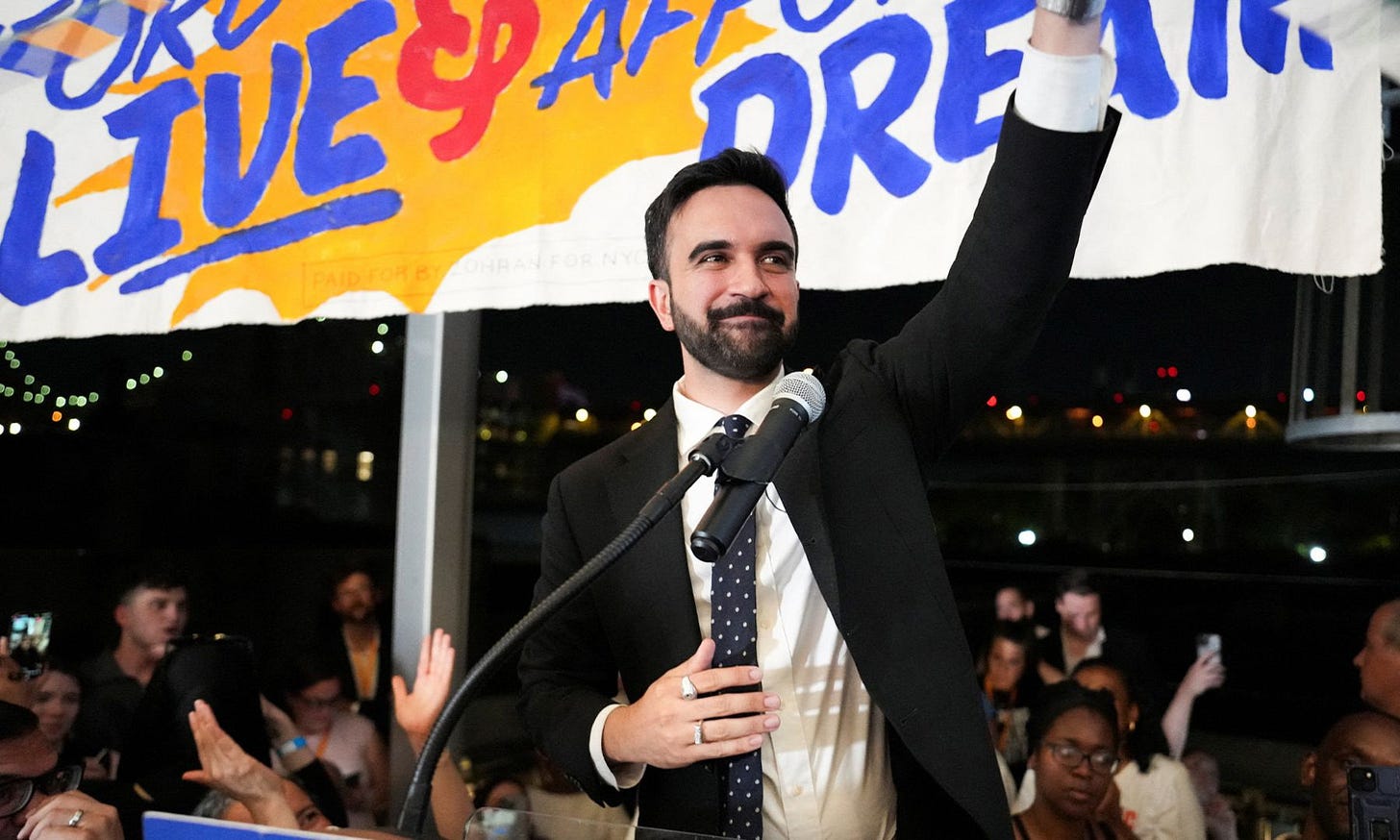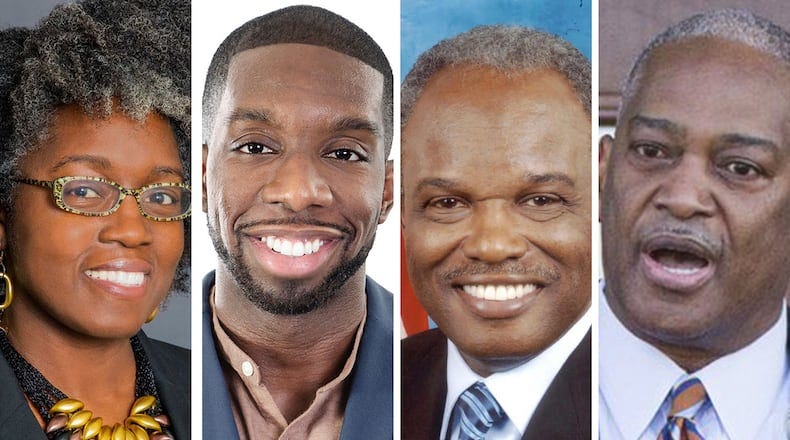Opinion: Democrats face generational reckoning
New York upset sends shockwaves through party's embattled old guard
From leaders, to donors, activists and even longtime strategists, folks all throughout the Democratic Party have been struggling to come up with an answer for their setbacks at the ballot box last November. What’s more, some worry that the party is lacking a forceful response to President Donald Trump and the actions being taken by his administration, many of which have landed in court.
And as the party’s top brass slowly comes to accept the fact that they were not as forthcoming as they probably should have been with the public about former President Joe Biden’s cognitive state, voters are turning to a tried-and-true method to help bring about the party’s next generation of leaders: primary elections.
By all accounts, former New York Gov. Andrew Cuomo seemed well on his way to mounting an unprecedented political comeback this week. This was despite multiple accusations of sexual misconduct and scrutiny over his administration’s handling of the COVID-19 pandemic that led to his surprise resignation in 2021.
But nothing — or no one — was standing in the way of the 67-year-old’s bid to lead America’s largest city. He had the support of many of the party’s most recognizable leaders, such as U.S. Rep. James Clyburn, the South Carolina “kingmaker” who helped crown Biden the Democratic nominee in the 2020 race for the White House.
The ex-governor also enjoyed support from many of the same New York politicians who just four years ago were chasing him out of Albany:
“[Rep. Gregory Meeks], who nearly four years ago called on the former governor to resign after being accused of sexual harassment by several women, described Cuomo as the man for the moment – a mayor who would stand up to President Donald Trump and pursue ambitious projects to better the city.”
That’s what makes Zohran Mamdani’s upset victory over Cuomo impressive on its own. The 33-year-old progressive assemblyman ran to Cuomo’s left, proposing policies such as free public transit, city-operated grocery stores and higher taxes on the wealthy. He also wasn’t afraid to take on Cuomo’s personal baggage.
But after spending months barely registering in public polling at times, Mamdani is now the Democratic Party’s nominee for Mayor of New York. While the final margin won’t be known for several more days, his win could mean we are entering a political environment where no longtime leader or incumbent is secure from primary scrutiny as the base demands a change.
Georgia could play host to one of those contests. U.S. Rep. David Scott, who celebrates his eightieth birthday this month, has faced mounting questions about his health and visibility (or lack thereof) around the metro Atlanta district he has represented for more than two decades. No primary challenger has been able to capitalize on those concerns.
But after losing his spot as the senior Democrat on the House Agriculture Committee, the long-serving Atlanta lawmaker’s re-election chances suddenly don’t seem as forgone as they were at the beginning of the year. At least 3 Democrats with elected experience plan to challenge him in the primary: State Sen. Emanuel Jones, State Rep. Dr. Jasmine Clark and former Gwinnett school board member Everton Blair.
Clark is no stranger to upset victories. The Lilburn microbiologist, then a first-time candidate for office, narrowly ousted a longtime Republican lawmaker in 2018 — one of several Democratic gains in suburban areas that year. She has been re-elected three times despite being a frequent target for defeat by Gov. Brian Kemp’s campaign apparatus.
Now she is challenging Scott for his congressional seat — and she says that the party must listen to those who want to see a change in leadership in Georgia, New York and across the country.
“While New York is New York […], you cannot deny that Zohran winning doesn’t send a clear message that voters are ready for a change,” Clark said in response to Mamdani’s victory.
The incumbent, for his part, is no anomaly in his party: he is one of more than 30 Democratic members of Congress who are older than 75. And at least half of them, including Scott, plan to seek re-election next year. This as the Democratic caucus mourns the untimely passings of three similarly-aged members since the start of this divided Congress.
But as Democratic leaders make promises to usher in a changing of the guard, voters and activists don’t seem eager to play the waiting game. Is the same strategy with the same leaders in charge the solution to the problem — or is it becoming a problem?




